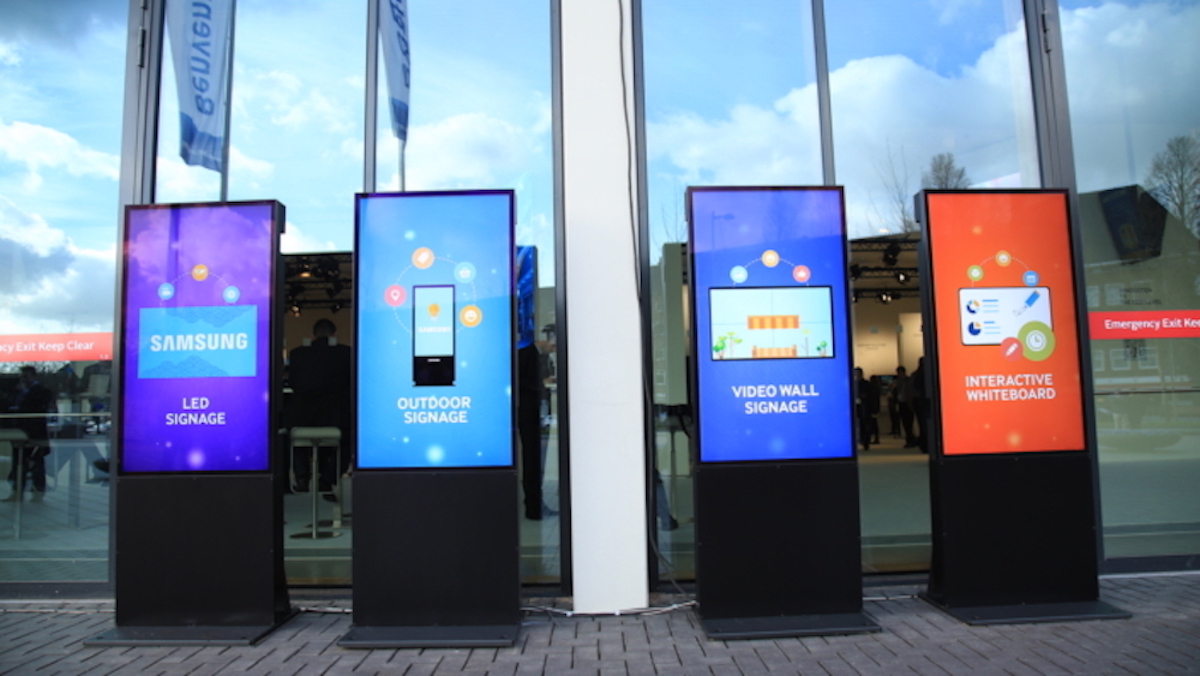Creating a Company Podcast
Internal podcasting - a private business podcast for your company - is something we think will become increasingly adopted by companies over the next few years.
Companies like Netflix, Shopify, and Spotify are using them, just to name a few. For HR or Internal Communications managers, they provide a unique way of communicating and building culture that written forms just can’t.
Our goal with this article is to give the best advice we can, for any company wanting to launch an internal show.
What is an internal or private podcast?
In short, an internal or private podcast is a podcast that is only available to your employees or team members.
Here’s something that could cause a bit of confusion: “private” podcasts are typically any audio content that is only available to a certain group of people. That means that the term “private” can apply to a private show for employees, or a private show that a comedian hosts, and charges a monthly fee for.
In fact, we find that when most people use the term “private” podcast, they mean the latter: a show with a paywall. That’s why we prefer “internal” when we’re talking about private podcasts for companies and their employees.
It’s a private show dedicated to internal communications among your team. However, since people use both words, we’ll use the two words interchangeably.
So when we say “private”, we mean, “available only to your team”. But we’ll usually use the word “internal”.
OK, so why should you consider an internal podcast?
The first question is, what is the benefit of a corporate podcast? After all, you’re probably already using email, slack, project management software, or meetings. What does communicating via audio have that those don’t?
It helps build empathy.
There’s just something about hearing someone’s voice that helps build empathy, in a way that written word can’t. We’ve heard many people say that podcasts let them feel like they know the person talking. So if you’ve got a large, distributed, or remote team, a podcast is a great way to communicate with them. It will allow your team to feel like they know the speaker, and connect with them in a far more personal or intimate way than written word.
It allows people to listen when they’re ready.
Instead of interrupting your team with instant messaging or emails, you let them listen to your message on their terms, when it works for them. It’s the audio equivalent to writing long messages, and letting team members engage with the message when they choose to. This allows them to retain focus and productivity when they’re working on a project, and then tune in whenever they’re ready to receive what you want to say.
Different setups for your private business podcast.
When it comes to setting up the flow, or structure of your podcast, there’s a few ways you can do it.
First, you could have a consistent host, but different guests each week.
In this model, you’d have one person host the show each week. This person could be someone you hire, or someone who already works for the company.
Their job is to choose what the topic of the show is each week (e.g. “what the marketing team is up to”, or “a conversation with the CEO”), schedule the guest, prepare an outline of what to talk about or a series of questions, record the episode, and then send it off to production (or produce it internally).
This method allows you to switch up the content every week, and it also makes it easier on your team or leadership. They just show up, talk for a bit, and the rest is taken care of. Also, you can keep it all within 1 department, or bounce around the company, depending on your goals.
Or, you could “pass the mic” department to department” and let them host their own episode.
In the end, what you talk about, how you say it, the length of the episode, how it “flows”, who hosts it, and how broad it is, should always be dictated by your goals. If you’re trying to build culture and let employees get to know the people they work with, you might want to have a very broad show, that talks about anything and everything your company is doing. If you’re focused on improving sales communications, you may want to have a specific sales podcast, with a weekly message from your CFO.
Some ideas to get you started.
There are dozens of ways you can approach creating an internal podcast. Here are a few…
Rally the team around a single message.
One of the easiest ways to use a private, employee-only podcast is to put out messages from the leadership team.
This might look like your CEO putting out a series of weekly messages during a crisis or tough time to unify the team. Or it might mean your CMO releasing an update on some new brand work the company is putting out.
Empower teams or departments to share what they’re working on.
Let’s say your CMO is making some changes in how your brand communicates, or is launching a new marketing channel, and wants to let the rest of the company know about it. They could come on your company podcast that week to let everyone know what’s going on, what changes to expect, and why they’re doing what they are.
Or maybe your customer support team had a really great week, and you want to invite them on to share about some of the complaints they received so everyone can learn from them and improve, as well as hear how the team successfully resolved everything.
As a final example, if you’re a larger distributed company with a major sales force, you can send out a message to the sales team emphasizing what to focus on that month.
Build culture.
Culture is definitely a buzz-word used by a lot of companies these days. But in the best sense, you could use your internal podcast to entertain, or provide more insight into what other team members are up to.
For example, you could have a show or episode where you invite team members to share their favorite moments that week from working from home, or an exciting moment that week at work. You could allow teams to share what they’re proud of.
You could even host a “know your team” podcast, to help departments get to know each other better, or introduce new employees who just got hired.
Onboard new employees.
You might consider turning your onboarding process (or at least part of it) to audio. For example, if you’re onboarding a new sales member, you create a stand-alone sales onboarding podcast, with 5 episodes. In each episode, you let the employee listen to successful sales information, how to deal with objections, hear a message from the manager, etc.
Or you could run a more generic onboarding podcast. It might have a series of episodes that include information on how the company got started, it’s mission and values, how life there works, a message from HR or the CEO, etc.
Equip team members with “clips” of information they can use.
Alright, another sales example. If your sales team gets a list of common questions, you could create a series of short episodes where you dive deep into answering each one. You can then share those clips with the sales department, and when they are working with a prospective customer, they can simply let the customer think things over and leave them with an episode where you go more in-depth on a topic. This would allow people to listen on their time, without the pressure of a salesperson.
Can’t decide? Run multiple shows!
Let's say you want to have a weekly podcast where your CEO puts out a unifying message, but then you want to have a second weekly show designed to let team members share what they’re working on, and excited about at the company.
You can either wrap it all into one podcast, or release each separately, with their own unique feel, sound and cadence. Many platforms will let you run multiple, and you’ll be able to view listenership to learn which of the two (or five) your employees are enjoying more.
Major companies using internal podcasting.
A bunch of high-profile companies use internal podcasts to communicate with employees and recruit new talent. Here are some of the pioneers.
Netflix: ‘WeAreNetflix’
Netflix used to host an internal podcast called “Inside Netflix” for employees only. Amir Moini, the employer branding lead, suggested taking it public, which has been a big win for Netflix.
“As we're accruing recruiting data around employer branding, what we've noticed is this [podcast] single-handedly has been the most influential thing that we've done all year,” Moini said in an interview with LinkedIn Talent last year.
The podcast, now called “WeAreNetflix,” features employees talking about work and life at the company. It’s hosted by senior software engineer Lyle Troxell.
Shopify: 20+ private podcasts
In 2016, Shopify’s Simon Hørup Eskildsen, now the director of infrastructure engineering, started Shopify's first internal podcast. The company’s workforce had grown tenfold since he started three years earlier.
“I was browsing the organization chart and decided I had to understand what more of these faces were actually doing,” Eskildsen wrote.
On the podcast, which he publishes privately for the company, Eskildsen interviews other employees to learn about their work and interests.
Eskildsen says the company has now started 20 or so internal podcasts, including one hosted by the CEO, recordings of weekly town halls and onboarding content.
Using your podcast for “employer branding”.
You can also decide to turn your internal podcast outward. That’s what Netflix did. This is sort of a blend of internal podcasting and branded podcasting.
The goal is to create a show that lets outsiders (listeners on Apple or Spotify) listen in to what your company is like. It lets them hear from voices inside the company, hear from different departments, learn about the culture and mission, and ultimately feel like they “know” your company.
We’re listing this here, because while it’s technically not a private podcast, it is centered on internal things.
Want a “done for you” solution? We can help.
If you want someone to run an internal show for you, let’s talk. With our internal podcast production, we can:
- Work with you to determine what content would benefit your team the most, and set a strategy for your podcast
- Provide a host for your show every week, who will handle everything from planning the episode, to scheduling with the team member they’re interviewing
- Provide expert production to help each episode engage your team
- Distribute each episode to the platform of your choice
- Provide world-class support whenever you need it
About Author
Related Posts
The Power of Podcasts
December 29, 2020
11 Reasons to Start an Association Podcast
December 23, 2020
Why You Should Get Off the Fence About Launching a Podcast
December 21, 2020
Leave A Reply
Popular
-

-
 The 17 Most Misunderstood Facts About AV Over IPJanuary 25, 2021 1
The 17 Most Misunderstood Facts About AV Over IPJanuary 25, 2021 1 -
 12 Interesting Statistics About Digital SignageJune 3, 2020 0
12 Interesting Statistics About Digital SignageJune 3, 2020 0 -
 9 Dos and Don'ts for Videoconferencing SecurityJune 29, 2020 0
9 Dos and Don'ts for Videoconferencing SecurityJune 29, 2020 0 -
 Does Your Podcast Pass the Twitter Test?October 27, 2020 0
Does Your Podcast Pass the Twitter Test?October 27, 2020 0





